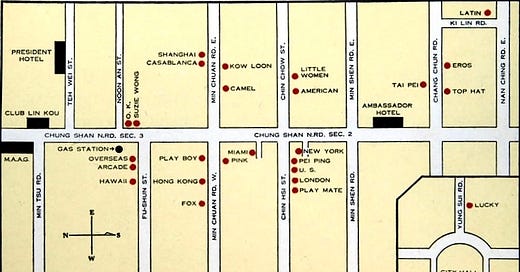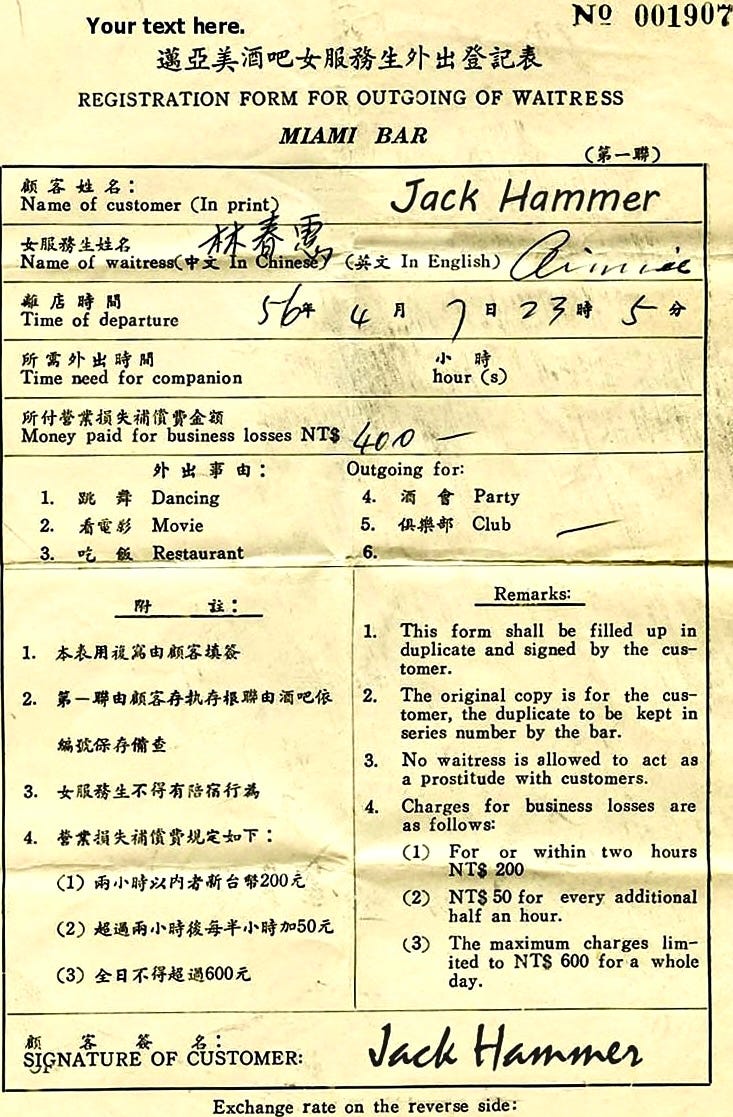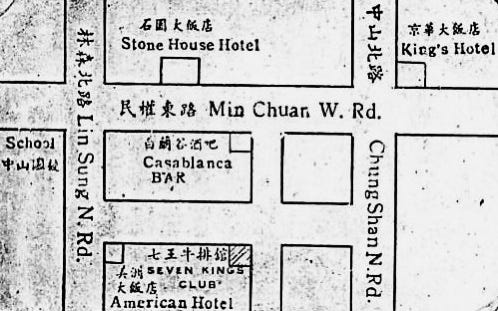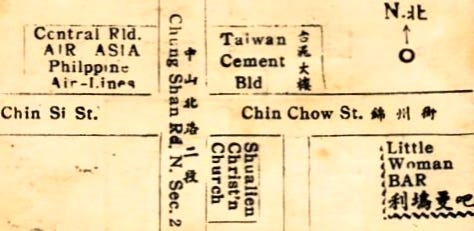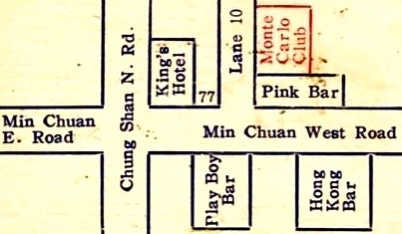China In Arms BOOKSTORE and GIFT SHOP!
Follow on Twitter
Subscribe: $5 Month/$50 Annual (unable to secure a subscription contact the bank for permission for Stripe deposits).
Paid Subscriptions can choose 2 free books.
20 AUGUST 2022
Nostalgia for Taiwan's Dark Ole' Days
Two Books Dive Into U.S. Military Cold War Sex Antics
By Wendell Minnick (Whiskey Mike)
Taipei - Before book worms, dust mites, Wokists, destroy the darker records of the Cold War in Taipei, it might be worth mentioning that two new books explore the days when whorehouses outnumbered convenience stores on Zhongshan North Road. Today, now gentrified, the area has little in the way of sleaze (minus Linsen North Road; from Nanjing Road to the gates of the Military Police Command).
The first is a reissue of Andrew Harris’ 1969 non-fiction narrative Taipei After Dark: 50th Anniversary Edition and the other is a new book by Daniel Reid: Shots From The Hip: Sex, Drugs, and the Tao. There is some overlap in venues in both books as the same bars, whorehouses, and vice echo between the two books. Reid’s book does help to bridge lost history between the 1960s and 1970s/1980s.
Old maps cobbled together from U.S. veteran websites, those who served at the U.S.-Taiwan Defense Command (now the Taipei Expo Park), indicate that the base and the bars were 10-15 minutes walking distance from the main gate. One veteran’s website, Shulinkou, provides an amazing array of photographs from the Cold War era of bars and of other activities of the era:
ABOVE: Template showing patrons how to fill out a bar fine for taking the hostess out for the evening. Note the slightly humorous name “Jack Hammer”.
Above: The Ambassador Hotel still stands.
ABOVE: Chin Chow Street was once called “sin alley.” Note the location of Air Asia, which was at the time part of the CIA’s cover airlines that included Civil Air Transport, Air America, and Southern Air Transport. See Leary’s Perilous Missions: Civil Air Transport and CIA Covert Operations In Asia; Pocock’s The Black Bats: CIA Spy Flights Over China From Taiwan, 1951-1969. Those who hate to read and prefer movies: Air America (1990) was a semi-realistic movie with Mel Gibson and Robert Downey Jr. Air America’s main base was at Tainan Air Base in southwest Taiwan.
Virtually all of the bars mentioned in the above maps are in Taipei After Dark. The book is not entirely about U.S. military misbehavior, but also delves into the sexual debauchery of all expatriates: Japanese businessmen, Overseas Chinese expatriate businessmen (Singapore, Hong Kong, etc), orgies of all types, references to pedophilia in Wanhua, and the making of a “blue film” (early black and white porn films were normally 8mm silent films; they were traded amongst U.S. college fraternities, men’s clubs like the Moose Lodge and VFW, and stag parties). Comparing the two books, Taipei After Dark is by far more surprising.

